
Jason Taylor is the filmmaker and photographer behind The Source Project, a self-funded multimedia venture that documents the methods, stories, and work of progressive farmers in India. To see a film of one of the farmers, watch this mini-documentary following farmer Amarjeet Sharma who turned a small plot of land in Punjab into a healthy, productive, and profitable farm using sustainable and holistic techniques.
-Jason Taylor
After 10 years of working as a photographer and a filmmaker in what is fashionably known as "development," I have finally come to the realization that much of what I was involved in was little more than "managed poverty." As I looked around me and interacted with media, development organizations, photographers and filmmakers, I began to understand that it is an industry like any other. I started to question the development work and the absolute disconnect between those who commissioned me and those I was there to document.
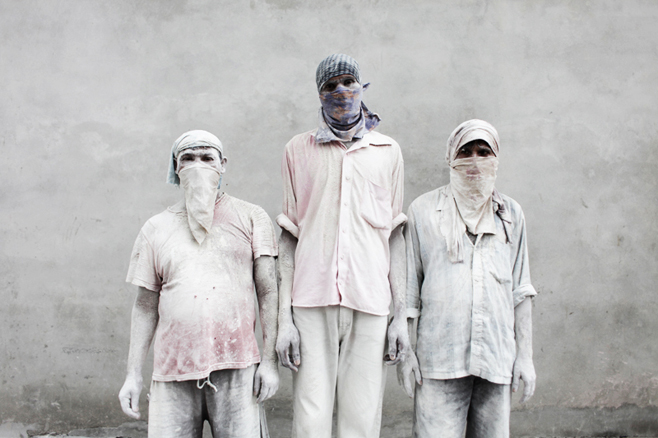
Over the years, I began to realize that the voice of the people I was being sent to document seemed to have far more clarity than the voice of the international development community; the terms of reference I was to work with seemed to have little in common with the reality of the field. I became frustrated with being sent out to cover an issue whose origins were quite obviously rooted in little more than short-sighted economic policy, yet blamed on a variety of factors, all seemingly and conveniently connected to the organizations' heavily funded long-term projects.
Almost three years ago, I decided to remove myself from the international development sector and start communicating some of the many stories in a way that represented the voice of the people most affected by these development policies. So I started a self-funded project called "The Source Project" and began a journey to meet some of the most progressive and enlightened farmers of India and document their stories about the agriculture and food production in a series of films and photography.
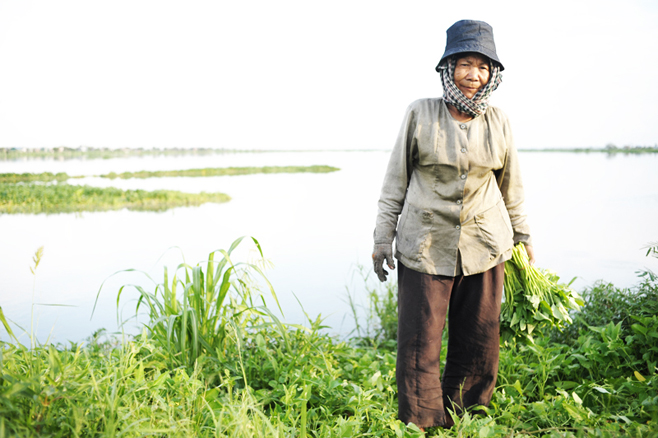
The films and images are licensed as creative commons. I want the work in the public domain and to do that I need to relinquish control and allow others to use and share my work. It is about beginning to change the way the conventional media works and therefore changing the way we interact with our subject and audience.
"Control oil and you control nations, control food and you control the people."
-Henry Kissinger
It was this quote by Kissinger that began to move me in the direction I am now travelling. It brought up many questions about the reality of food security and agricultural policy.
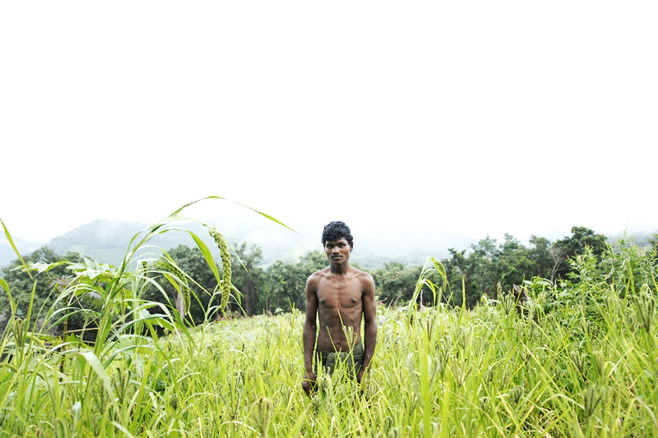
Agriculture is central to everything: our health, environment, resources, culture, work and security. It is the essence of life. Over the coming decade, we will experience the most fundamental changes to our agricultural systems and our future food security. Soon, just a few aggressive transnational corporations will control our food. As I began to scratch the surface of these issues, I realized that what I was witnessing had little to do with low-yield production and feeding the growing populations and much more to do with greed, corruption, market manipulation and the imperialistic behaviour of some of the most powerful corporations.
The farmers, the real farmers of the world, are the source of all knowledge -- knowledge of seeds, knowledge of soil, knowledge of the seasons, knowledge of our interdependence and reverence for other species, knowledge of the cyclical loop in which all comes from and returns to the earth. It is their knowledge that I want to show to the majority of people who have become absolutely disconnected from the source of our food.
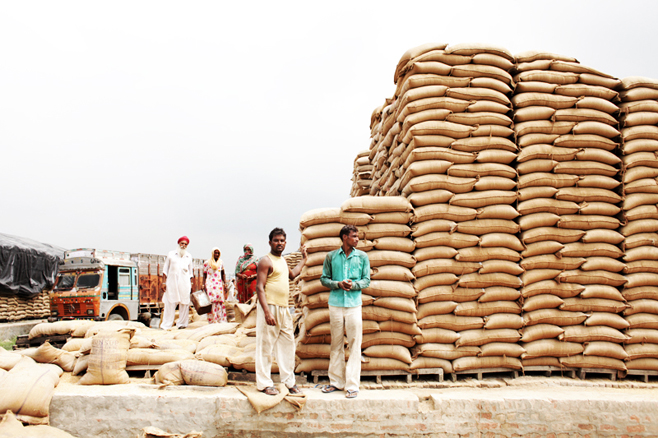
"Earth provides enough to satisfy every man's need, but not every man's greed."
-Mahatma Gandhi
Bhaskar Save, possibly India's most famous Gandhian organic farmer, once made a simple experiment. He took a pot, weighed some soil, put the soil in the pot and added a seed. A month or so later he removed a gourd weighing few kilos. He then removed the plant and re-weighed the soil. It was the same as when he had planted the seed. With absolutely no inputs, nature and her elements were able to provide food from nothing -- healthy, nourishing, and free food.
So the question is: how is it possible that we have moved from a free system that enhances our environment to a costly system that destroys our environment?
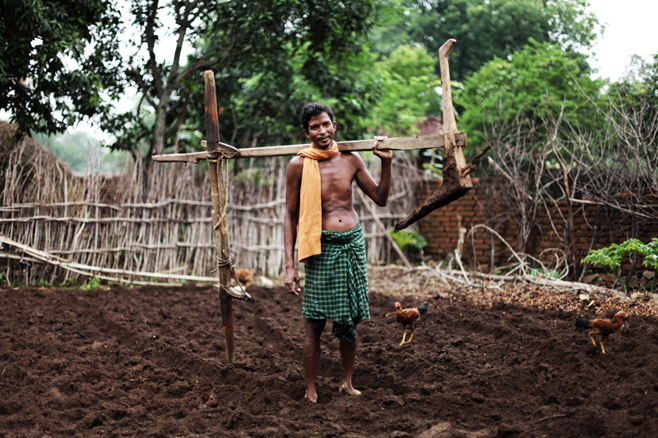
Natabar Sarangi, a seed farmer from Orissa, believes that the answer is in the vast profits and uncontrolled markets. Before the green revolution, Sarangi points out 'a farmer was able to make around Rs. 50,000 per hector on an average, now even the commercial farmer can make, at best, Rs.15,000 a hector.' This 70 percent loss to the farmer, he argues, is now being diverted as profit to the large foreign corporations that, over the years, have been able to successfully enter and control the agricultural markets.
This loss is linked to the input-intensive system of agriculture, which was adapted in the 1960s. Amarjeet Sharma, a farmer I met in Punjab, told me:
The use of chemicals brought in by the green revolution was like taking drugs; at first it feels good, you feel strong and in control, then slowly the drug starts to control you, then you become weak and dependent.
When India decided to adapt to a chemical-based system of agriculture, the results were beyond anyone's expectations. I was told that in many areas, farmer's crops doubled, making Punjabi farmers some of the richest in Asia. For years, farmers made huge profits, but as they did so they became removed from their environment, they employed farm managers and turned their agriculture practices into little more than a business, inputs and outputs, remote farming. With little regulation on the sale and use of these products, Punjab became the wild west of an agrochemical and environmental war, which slowly eroded the state's natural resources and biodiversity.
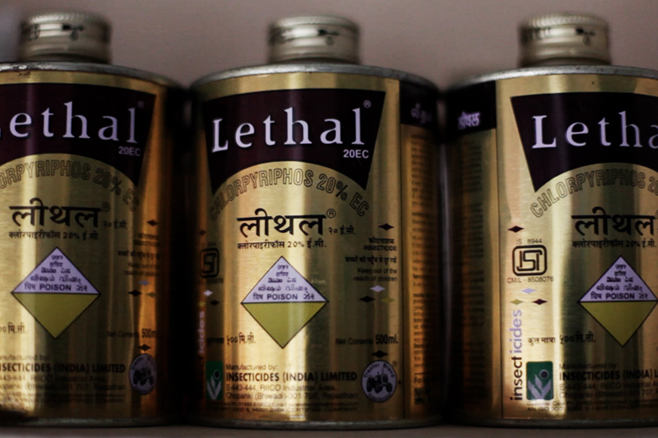
Natabar tells the same story from the other side of India. He proclaims that India was "the mother of rice," with over 110,000 varieties of rice. Varieties of rice that were perfectly adapted to different soil and weather conditions, from drought-tolerant, saline-tolerant, and even flood-tolerant, and rice that grew in over 10 feet of water, varieties that could be used to counter our changing climate.
Since the advent of the green revolution, India has lost over ninety per cent of these varieties, leaving the majority of the farmers solely dependent on the government-supplied company seed.
Now, after 50 years of so-called agricultural development, we have lost seed diversity and bio-diversity, the farmer becoming poorer, soils being destroyed and nutritional value of the food decreasing. The only thing that has gone up is the profit for the transnational corporations. What a wonderful model of development we have created!
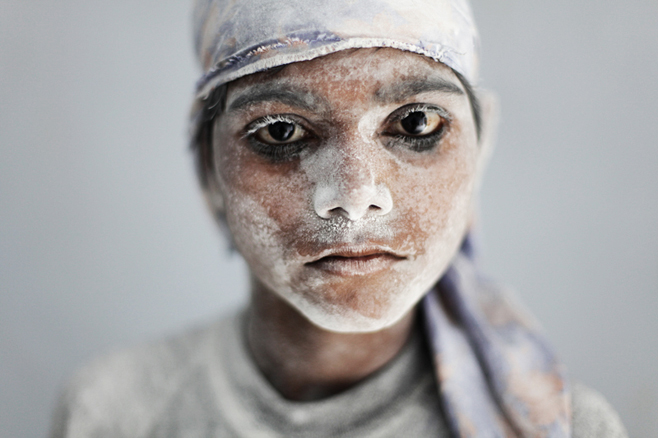
Despite the dire situation, all is not lost. What keeps me going on my journey are incredible farmers such as Bhaskar, Natabar, Amarjeet and many others that I have met along the way. Farmers like them around the world are beginning to reclaim their fundamental rights to a sustainable and equitable food system. They have realized that the future is not chemical and is certainly not just profit-driven. The unsurprising answer, it seems, is in the practice of natural farming, a system that is thousands of years old, which is based on the principles of working with nature rather than against it. It is a system that incorporates saving and sharing of seed, use of natural methods like worm composting and mixed cropping, organic fertilizers and pesticides and, above all, complete respect for the well being of all that is part of our natural environment.
People all over the world are beginning to realize the true value of our food. A failed industrial model may have the money behind it and even the government in many cases, but the people -- the producers and consumers -- are now beginning to realize that this future does not taste so good. The landscape is slowly changing, but do we have the political and consumer will to support our farmers and restore all that we have lost so far?
For more photos and film from The Source Project, visit Food Politic.